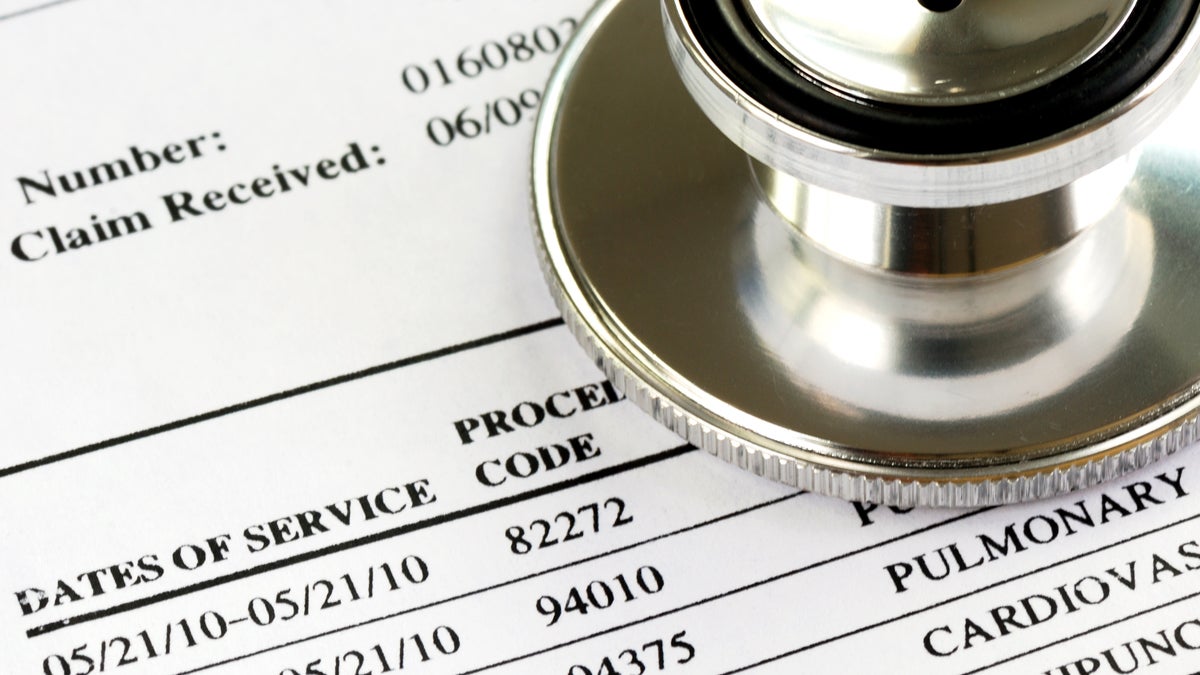How to make sense of your medical bills

(Shutterstock photo)
When you look at your medical bill, are you confused about the charges? Do you not know where to start when you’re trying to figure out what questions to ask? Well, you’re not alone.
We recently launched the WHYY PriceCheck initiative to help create some transparency around medical bills and we’ve been getting a lot of questions from people who don’t know what to do about their confusing bills, or feel like they’ve been overcharged.
So we thought it would be helpful to have Nicole Seefeldt, a member service representative at WellNet Healthcare and a member of the Society of Participatory Medicine, help us make some sense of it all. She talks to people about medical bills on a daily basis and has some tips on what to do before calling your insurance company and what you should be asking about.
Start with the basic information
Seefeldt says a good starting point is to first make sure your bill was sent to the right place.
“Double check that the insurance company that they sent the bill to actually matches the mailing address on the back of your [insurance] card,” Seefeldt says. “That way, when you call the insurance company, you might have an idea of whether they actually have it on file or not, or if it was sent to the wrong place.”
Another thing you’ll need is your date of service. That’s the day you went to the doctor and received health services. Some of the medical bills don’t have that listed on them, so you might have to take a look back at your calendar or ask your insurance company for it.
The next thing you should notice is your total charge. The total charge is what your provider billed your insurance company. If the number doesn’t look right or you just want to check it out, you definitely should. Seefeldt says it’s very possible for you to get charged incorrectly.
“A lot of times, if they send it electronically and they use the wrong filing number, it’s the same as making the address mistake,” Seefeldt says.
Even after the correct address, date of service, and total charge are verified, you might still be confused. Luckily, you have another option. You can speak with a representative of your insurance company to get more help.
“Always ask enough questions until you feel comfortable,” Seefeldt says.
Know the key phrases
According to Seefeldt, there are a few key phrases that help indicate to an insurance company that you mean business.
“Date of service, total charged, deductibles, co-pays, co-insurance,” she said. “All of those are pretty commonplace terms and they should be able to break it down for you how the claim was processed and what you actually owe.”
The other terms to be familiar with are in-network and out of network. Sometimes, with very large bills, the doctor or facility has more than one tax ID number.
“They have to use the one that’s in network and bill the one that’s in network within your insurance company,” she says. “So you always want to check to make sure even before you go, whether your doctors and facilities are in network.”
Many times, if you have an out of network claim, that cost can be a lot more expensive than you expected.
Common confusion
Working at a call center, Seefeldt says she deals with a lot of the same types of issues.
“Maybe the [provider] didn’t get the payment and so they are billing the total charge, sometimes they put the wrong discount amount in or the wrong deductible, or mess up some of the columns once they credit the account, or sometimes charges are just wrong.”
Seefeldt says if you have any concerns or questions with what you’re being charged, you should talk to talk to both parties until you figure out what’s going on. If you’re not getting the information you need when you call, ask for a supervisor or ask the person on the other line to explain things in a different way.
“Sometimes mistakes do happen and when you’re reviewing it, someone at the other end will see something and send it back for review.”
WHYY is your source for fact-based, in-depth journalism and information. As a nonprofit organization, we rely on financial support from readers like you. Please give today.






